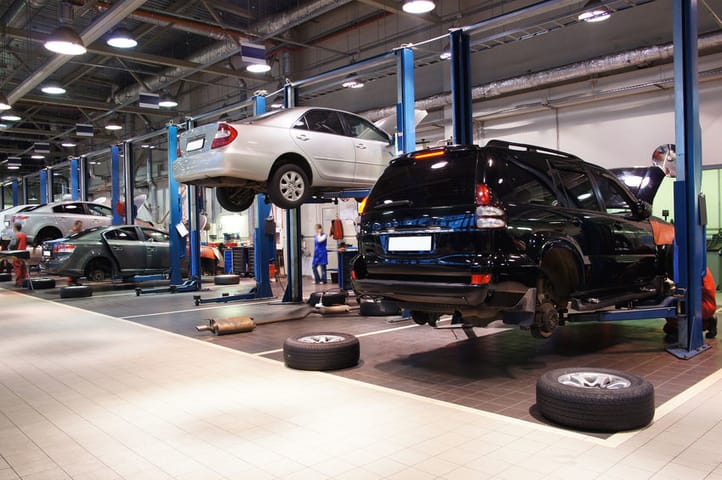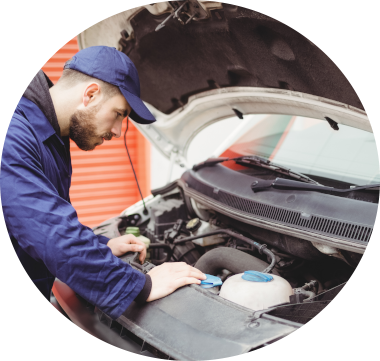All Categories
Featured
Your vehicle's brakes are one of the most critical elements in ensuring your safety and security and the safety and security of others when traveling. Regular brake inspections are essential to keeping optimal braking efficiency and avoiding expensive repair work. Whether you're a seasoned auto proprietor or a brand-new chauffeur, understanding brake examination guidelines can help you stay proactive about maintenance and ensure your lorry is constantly roadworthy.
- Why Brake Inspections Matter. The even more you drive, the much more rubbing your brake pads sustain, at some point leading to lowered stopping performance. Without correct inspection, it's hard to assess when your brakes may be in need of repair service.
A well-maintained brake system ensures quick, responsive stopping power, specifically in emergencies. It also aids prolong the life of your vehicle, as overlooking brake upkeep can lead to a lot more severe, costly problems later.
- Indicators You Required a Brake Evaluation. While it's essential to have your brakes evaluated regularly, certain signs might suggest that they need focus. Watch (and ear) out for these warning signals:
Squealing or Grinding Sounds: Uncommon audios, especially a high-pitched squeal or grinding noise, typically imply that your brake pads are put on down. Resonance or Pulsation: If you really feel resonances or a pulsing feeling when pressing the brake pedal, it might be an indicator of deformed blades or irregular brake pad wear. Lowered Brake Responsiveness: If your brakes really feel less receptive or you need to push the pedal harder to decrease, it may indicate air in the brake lines or low brake liquid. Pulling away: If your vehicle pulls to one side when stopping, it can suggest irregular brake pad wear or a brake fluid leak. Dashboard Warning Lights: Some autos have brake-related caution lights that suggest issues like low brake liquid or worn brake elements. If you discover any of these signs, it's critical to have a professional mechanic do a brake evaluation asap.

- What Occurs During a Brake Evaluation? During a brake assessment, a technician will certainly check a number of key parts of the braking system to make sure whatever is in functioning order. Below's what you can anticipate throughout the procedure:
Brake Pads and Shoes: The mechanic will evaluate the thickness of the brake pads or shoes. If they're as well slim, they'll require to be changed. Brake Rotors: Blades are the discs that the brake pads press versus to reduce your auto down. They'll be examined for any type of indicators of wear, racking up, or bending. Brake Fluid: Reduced or infected brake fluid can impair braking performance. The specialist will certainly check the fluid degree and quality and leading it up or flush it if needed. Brake Lines and Hoses: Brake lines carry liquid from the master cyndrical tube to the brakes. The mechanic will certainly examine for any type of leaks, splits, or damages to ensure proper fluid flow. Brake Calipers and Wheel Cyndrical Tubes: Calipers and wheel cylinders press the brake pads against the blades or drums. The technician will certainly look for wear, leaks, and correct operation. 4. Just how Usually Should You Have Your Brakes Checked? The frequency of brake examinations relies on elements like your driving behaviors, the kind of automobile you drive, and the atmosphere in which you drive. As a basic rule, it's a great concept to have your brakes checked every 12,000 miles or yearly. Nonetheless, if you experience any of the indication discussed earlier, it is essential to obtain your brakes checked right away.
For those that frequently drive in hefty website traffic, hilly terrain, or rough climate conditions, even more constant examinations might be essential.
- Value of Timely Brake Fixes. When you detect an issue with your brakes, it's necessary to address it immediately. Delaying brake repairs can cause more considerable damage to your braking system, resulting in greater repair service costs. In severe cases, neglecting brake problems can lead to finish brake failure, which is a severe safety threat.
By staying on top of brake maintenance and attending to concerns quickly, you make certain that your brakes continue to execute as planned, maintaining you and your passengers secure when driving.
Verdict: Keep Your Brakes in Leading Shape. Brake assessments are a straightforward yet important part of car upkeep. By recognizing the value of regular examinations, recognizing the indications of brake concerns, and staying positive with repairs, you can guarantee your vehicle's stopping system remains in optimum condition.
Latest Posts
Bring the Tropics Home with Hand Trees
Tire Alignment Services Near You! at MO
Expert Auto Care at Montclare Auto Repair - Check It Out
